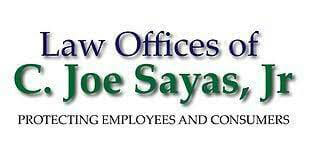Are you getting the full 30 minutes for your meal break?

Kennedy Donohue worked as a nurse recruiter at the San Diego offices of AMN Services, LLC, a healthcare services and staffing company that recruits nurses for temporary contract assignments. Ms. Donohue worked eight hours per day. Per company policy, nurse recruiters were provided with 30-minute meal periods beginning no later than the end of the fifth hour of work; that the meal period was an “uninterrupted 30 minute” break, they were “free to leave the office site,” and were not impeded from taking their break.
During Ms. Donohue’s employment, the company used an electronic timekeeping system called Team Time to track its employees’ compensable time. Using their work desktop computers, they punched into Team Time at the start of the day, at the start of lunch, at the end of lunch, and at the end of the day.
In calculating work time, Team Time rounded the time punches to the nearest 10-minute increment. For example, if an employee clocked out for lunch at 11:02 a.m. and clocked in after lunch at 11:25 a.m., Team Time would have recorded the time punches as 11:00 a.m. and 11:30 a.m. Although the actual meal period was 23 minutes, Team Time would have recorded the meal period as 30 minutes.
Ms. Donohue sued AMN in a class action alleging, among other things, that the employer’s practice of rounding meal period punches to the nearest 10th is illegal. The employer argued that rounding is a practical method for calculating worktime and can be a neutral calculation tool for providing full payment to employees. Both the trial and appellate courts agreed and dismissed the case. Ms. Donohue appealed to the California Supreme Court, which reversed the lower courts.
The high court emphasized that California law sets precise time requirements for meal periods. Each meal period must be “not less than 30 minutes,” and no employee shall work “more than five hours per day” or “more than 10 hours per day” without being provided with a meal period. The precise time requirement set by law (“not less than 30 minutes”) is at odds with the imprecise calculations that rounding involves. The regulatory scheme that encompasses the meal period provisions is concerned with small amounts of time.
Similar to the law on rest breaks where the law forbids “encroachments” on the 10 minutes allotted for rest periods, the high court stated that the same vigilance is needed here. Given the relatively short length of a 30-minute meal period, the incursion that might result from rounding is significant. On a 30-minute break, time is scarce and when time is scarce, minutes count.
The meal period provisions are designed to prevent even minor infringements on meal period requirements. Rounding is incompatible with that objective. The high court concluded that employers who engage in the practice of rounding meal period time punches do so in violation of law.
Under the law, meal break violations against an employee can occur if the employee 1) was not provided an actual break; 2) was prevented from taking the break within the first 5 hours of work; 3) was interrupted by work during break; or 4) took a shortened break, as the case here. If any of these violations occur, the employee should be paid an additional one hour at their regular hourly rate.
The Law Offices of C. Joe Sayas, Jr. welcomes inquiries about this topic. All inquiries are confidential and at no-cost. You can contact the office at (818) 291-0088 or visit www.joesayaslaw.com. [For more than 25 years, C. Joe Sayas, Jr., Esq. successfully recovered wages and other monetary damages for thousands of employees and consumers. He was named Top Labor & Employment Attorney in California by the Daily Journal, consistently selected as Super Lawyer by the Los Angeles Magazine, and is a past Presidential Awardee for Outstanding Filipino Overseas.]

